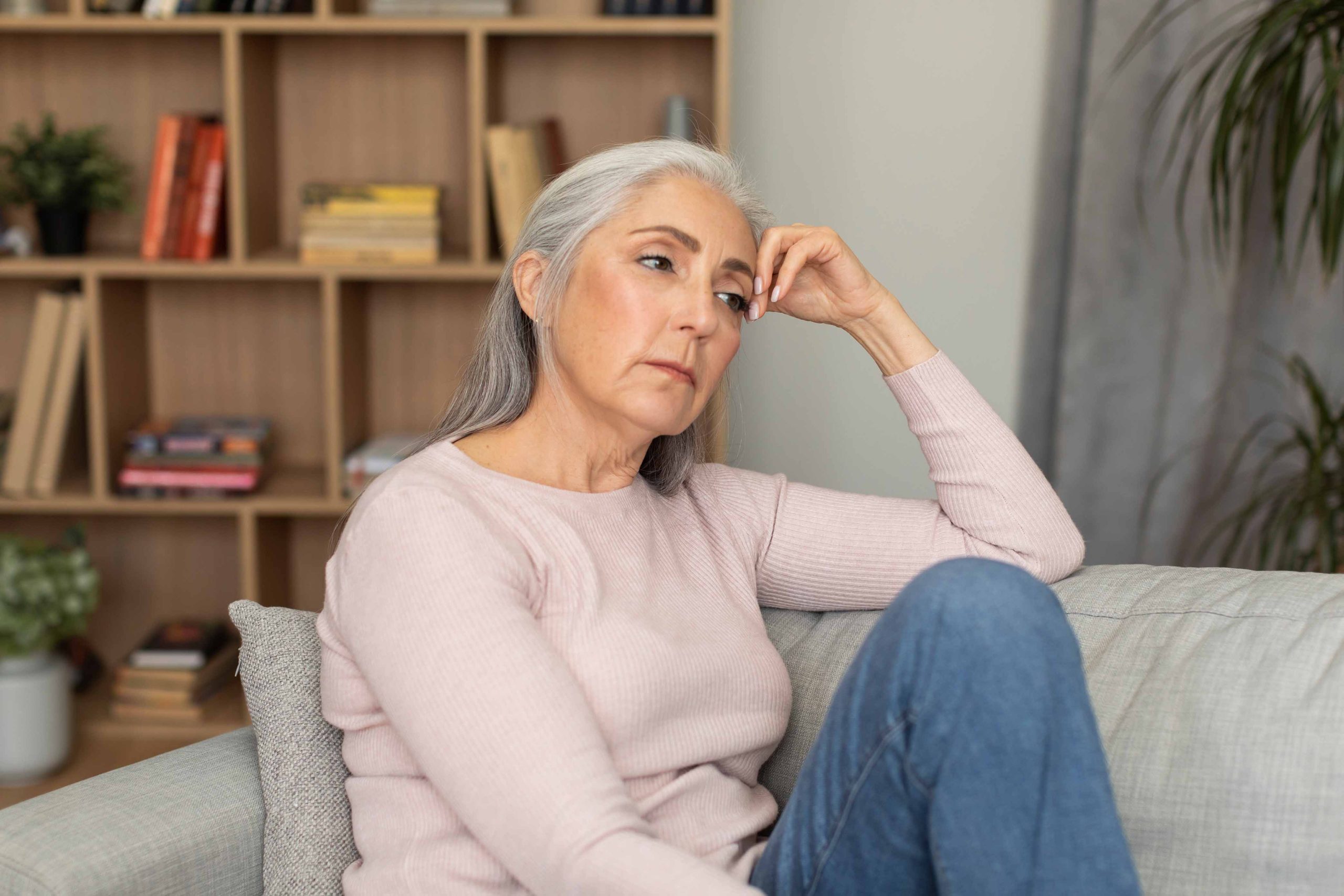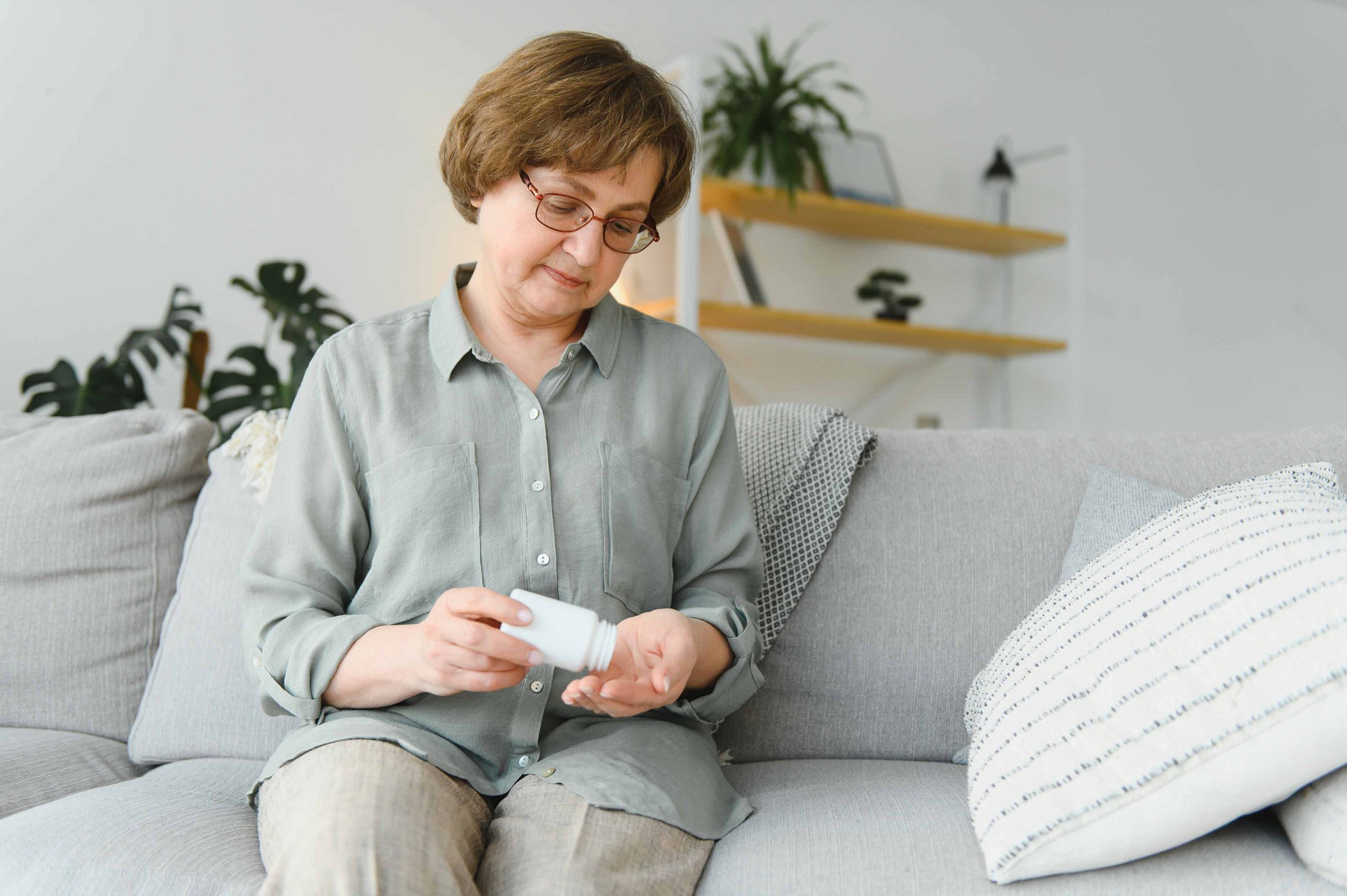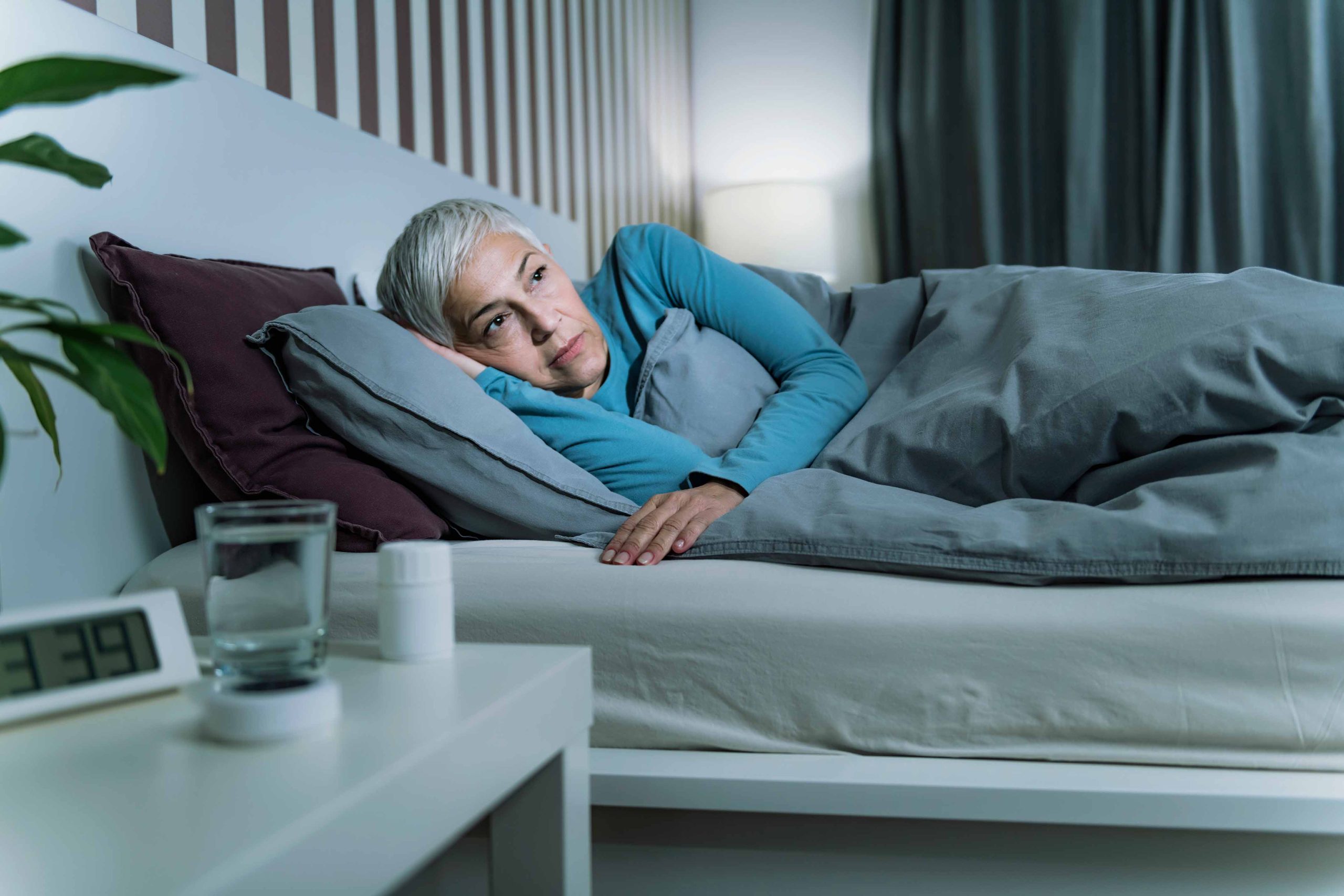«I had always slept well, only major Troubles kept me awake. And then menopause came. I never slept through the night again.» Ana, in my office.
«I hadn’t wanted to have children, but by choice. From that moment on, the freedom to choose no longer existed. I went through a grieving process for the melancholy of what can no longer be. It was tough. If you add to that the physical changes I’ve had, the hot flashes that have prevented me from doing my job normally, my life normally, anything normally, well, it was a difficult process.» Mamen Mendizábal, journalist. «Let’s talk about menopause» El País Semanal, May 5, 2024.
«I’m losing it, I cry over anything, I snap at the slightest remark, I can’t even put up with myself. No one tells you what this is like, they talk about little hot flashes and that’s it, we’re invisible.» Raquel, in my office.
Menopause is one of the most notable members of the group of things that are never said, you know, the poor relatives of the things that are always said (A. González-Cano). This lack of information and the culture of shame, along with the absence of this topic in any media, has been the dominant theme for centuries, to the point that the 500-page book! by Canadian-American gynecologist Dr. Jen Gunter «The Menopause Manifesto» (Citadel Pr, 2021) was a best-seller: it aimed to dismantle myths, put an end to instilled fears, and empower women through objective and truthful information.
In its simplest biological definition, menopause is marked by the end of menstrual periods (as an expression of ovarian insufficiency) and is a «non-diagnosis» established retrospectively after 12 months without a period. Prior to this moment, there is a variable time of menstrual irregularities, called «perimenopause,» which represent a change from the previous pattern, and the term «perimenopause» encompasses all these phenomena. Although the lack of menstruation is the most obvious manifestation of menopause, it is the ovaries (and their hormones) that are «failing»: they stop producing eggs and the hormones that mark the fertile years of a woman’s life. This lack of steroids affects multiple systems and increases the risk of diseases, related to osteoporosis, dementia, and heart disease.

It is not a disease, and yet, we talk about «symptoms» and «treatments.» The medical community oscillates between ignoring it «it’s a natural phase, just use a fan for hot flashes and that’s it» and prescribing indiscriminately: there are already voices warning of the excessive medicalization of menopause. It’s worth remembering that there are as many menopauses as there are women, and that each decision about possible treatments will have to be individualized and agreed upon.
The «symptoms» or clinical manifestations considered cardinal in menopause, based on their association with the transition and the possibility of being treated with hormones, are four: vasomotor symptoms/hot flashes, genitourinary symptoms, sleep disturbances, and mood difficulties. All of them belong directly to the field of mental health or have a considerable impact on it.
Vasomotor symptoms (hot flashes)
Experienced by up to 80% of women, they are the rule more than the exception: they appear on average 4.5 years after the last menstrual period and last a median of 7.4 years; they «tend» to disappear after a few years, but many women experience them for more than a decade. About 50% of women who have these symptoms before menopause will have them persistently 10 years or more after their last period.
They consist of a wave of heat that starts in the upper chest and face and then spreads throughout the body. Those happening at nighttime are called «night sweats» and greatly disrupt sleep. Some women suffer a few in their lifetime while others have several every hour, with a huge impact on their daily lives.
Treatment ranges from what we could call «common sense remedies» (fan, dressing in layers), to avoiding triggers (alcohol, caffeine – in some women), and also cognitive-behavioral therapy, acupuncture, weight loss, non-hormonal medications (antidepressants, clonidine, gabapentin; only paroxetine and fezolinetant are FDA-approved for this indication), and hormones in various formulations. Other approaches, such as yoga, exercise, consumption of omega-3 fatty acids, and black cohosh, have not been shown to be effective.

Genitourinary symptoms
Vaginal dryness, dyspareunia, and urogenital symptoms are less common than the former, but still very common, in 25-50% of women. They include dryness, chronic irritation or burning of the vagina and vulva. There may be bleeding and pain during intercourse and lack of lubrication. There is also increased frequency of urination with little output, dysuria (discomfort when urinating), urethritis, and frequent urinary tract infections.
These problems theoretically reflect the lack of hormones and the absence of exposure to estrogens of the vaginal epithelium and urinary tract. Unfortunately, and unlike vasomotor symptoms, symptoms of menopausal genitourinary syndrome do not spontaneously resolve over time. They are, however, very effectively treated with topical treatments: estrogens, moisturizers, or lubricants. Although it has become fashionable, laser treatment of the vagina does not improve these troublesome manifestations.
Sleep disturbances
If the two previous problems obviously influence mental health, this one has a significant impact: in fact, some authors believe that menopausal mental disorders are largely secondary to poor sleep, although not all (epidemiological) studies find a clear relationship between ovarian insufficiency and sleep. Women with more sleep problems are those with insomnia at a younger age, long before menopause, as anyone could venture. And let’s remember that getting older is associated with worse sleep, so it is not always easy to decide which factor is the «culprit.»
It is clear that night sweats greatly worsen sleep, causing multiple awakenings and poor-quality sleep. Furthermore, even without hot flashes, the sleep architecture in menopausal women shows more disturbances in the second half of the night, with disruption of REM sleep. It is important not to attribute to menopause all sleep problems in women of this age, and to make a diagnosis by ruling out other disorders (sleep apnea, restless legs syndrome, etc.) as in other times of life.

Mood disorders
Here we enter fully, without excuses, into mental health. Mood problems have a complex relationship with menopause. Depressive symptoms are associated with nocturnal hot flashes and sleep disturbance, indicative of the close relationship between sleep and mood. Multiple well-designed studies have identified the menopausal transition as a vulnerable period for depression in middle-aged women; during this period, the likelihood of experiencing new-onset depression is 2-4 times higher. Anxiety and concomitant hot flashes predict major depression during this time.
It is clear that, although hormones (or their absence) are ultimately responsible for these problems, in cases of moderate and severe mood disorders, hormone therapy is not the first-line treatment. Otherwise, since it is often difficult to unravel the various contributing factors to mood changes (hot flashes, sleep disturbances), it is better to do a short trial with hormone treatment, if possible, rather than using multiple specific compounds for mood, sleep, and hot flashes to determine which symptoms are due to the menopausal transition and which are independent of it.
To treat or not to treat?
Let us remember the phrase from the beginning: there are as many menopauses as there are women. This means that the decision to use treatments and which ones to use will have to be individualized in each case.
Regarding mental health problems «triggered,» «caused,» or perhaps simply «associated» with menopause, a reasonable option would be to consider this as just one more of the innumerable «etiologies» or factors associated with mental disorders, that is, to treat them when possible or desirable, using strategies appropriate to the severity of the disorder, and always agreeing on the therapeutic approach with the woman. This is an exemplary field of the healing power of what we pompously call «psychoeducation»: listening attentively to what is happening and explaining it in simple terms away from scientific jargon to truly empower the woman and allow her to make her own decisions.
And I would like to end these lines with a reflection addressed to all those who are raising their voices against what they consider to be an «excessive medicalization» of menopause. With the current level of development we enjoy, this seems like a sterile debate. So many things that were considered natural a century ago, like pain, deadly infections, early mortality, have ceased to be so thanks to that alleged medicalization that is not a subject of debate. Why should menopause be any different? For the same reason that analgesia during childbirth generated so many – fortunately overcome – controversies? (Curiously, I have never heard any prominent author complain about the excessive medicalization of renal colics, also very natural for all those whose kidneys are prone to fabricating stones). Or perhaps it is because menopause has been invisible and so should remain? In the words of Dr. Gunter, «There is no greater act of feminism than talking about a menopausal body in today’s society.»

About the author
Alicia Fraile is a psychiatrist at SINEWS, Madrid with more than 20 years of experience in general clinical psychiatry. She has worked in brain damage, Mental Health Centers, occupational psychiatry, work accidents and their repercussion in psychiatry (post-traumatic stress disorder, adaptive disorders), patients with chronic health problems and of course with the most frequent pictures of our field: anxiety, depression, insomnia, obsessive-compulsive disorder.

